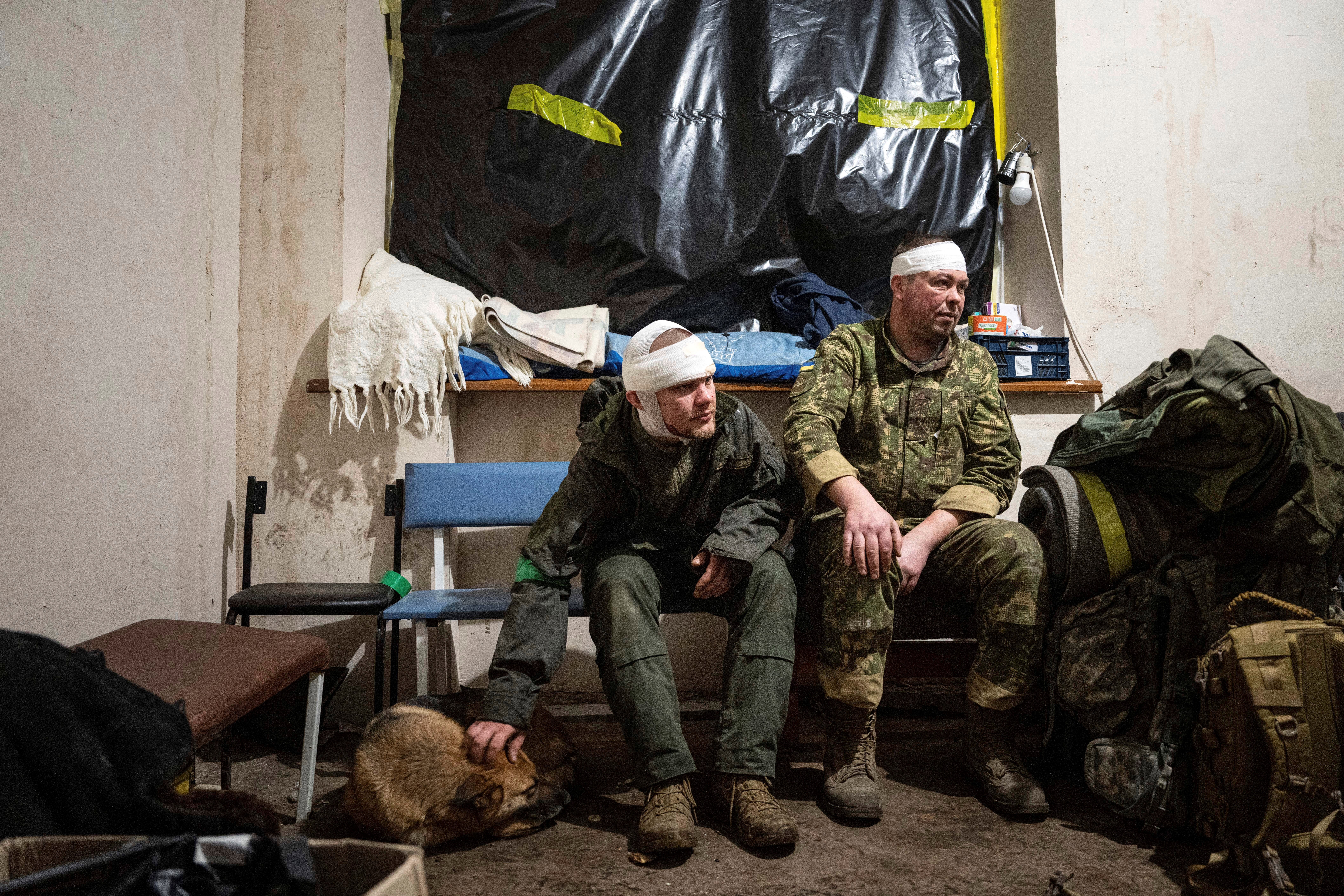West to pressure Kiev into talks if no major wins made by fall: Bild
The German Bild newspaper says the West might pressure Ukraine into talks with Russia if it does not retake major land by next fall.
-

Ukrainian servicemen who were wounded at the battlefield wait to leave the field hospital near Bakhmut, Donetsk region, Sunday, Feb. 26, 2023 (AP Photo/Evgeniy Maloletka)
The West will pressure Ukraine into peace negotiations with Russia if Kiev is unable to make strides on the battlefield and regain territories by fall 2023, the German Bild newspaper reported Monday.
According to the newspaper, the people of Ukraine want nothing more than peace. However, it noted that "they also know that what is being heard from Paris, Berlin, and Washington can be dangerous for Ukraine," as sometimes, negotiations do not lead to peace but more war.
However, it said the Wall Street Journal reported that German Chancellor Olaf Scholz and French President Emmanuel Macron urged Ukrainian President Volodymyr Zelensky at a meeting in Paris to think about holding talks with Putin.
"Both in the United States and in Germany, the government is arguing behind closed doors that Ukraine has until the fall to win back areas," Bild said. Otherwise, there must be increased pressure for negotiations.
The signals coming from the West are very harmful to Ukraine even if they have not been made public yet, the German newspaper said, noting that they were very positive for Russia.
Furthermore, it argued that Ukraine should not be given an internal window of opportunity for "reconquests", as the West, apparently, should be willing to support Kiev militarily well beyond the fall of 2023.
This comes after Russian Envoy to the United Nations Vassily Nebenzia said in January that his country was ready for peace talks on Ukraine, only if it ensures that no kind of threat will emerge from Ukrainian territories in the future.
“The goal is to ensure that no threat will emanate from Ukrainian territory for Russia, and the discrimination of the Russian-speaking population, and if this can be achieved through peaceful negotiations, we're ready to engage,” Nebenzia said during a UN Security Council session.
On the other hand, the envoy highlighted that Ukraine was promoting its idea to organize a Peace Summit everywhere, but considers it an attempt to regain sympathy from the Western public.
He added that this could be "merely an attempt" to win sympathy among the west, who he believes are increasingly questioning where the money to Kiev is going.
A month later, in February, reports came out about CIA chief William Burns having traveled to Moscow to offer a peace proposal that includes Ukraine officially giving up "around 20 percent" of its territories to Russia.
Burns submitted the peace offering on behalf of the President of the United States Joe Biden, the report noted.
The Washington Post reported earlier that the head of the CIA Burns made a secret visit to Ukraine to meet with Ukrainian President Volodymyr Zelensky and officials from local intelligence organizations.
The newspaper reported that the US proposal offered "around 20 percent of Ukraine's territory" to Russia, almost the size of the Donbass region.
Ukraine refused the plan "because they are not willing to have their territory divided," while Moscow said it will "will win the war in the long run anyway," the report continued.
PBS cited Burns in December as saying that “most conflicts end in negotiations, but that requires a seriousness on the part of the Russians in this instance that I don’t think we see," adding that “at least, it’s not our assessment that the Russians are serious at this point about a real negotiation.”
Biden's National Security Advisor Jake Sullivan and Burns "wanted to end the war quickly so they could focus on China," while the US Secretary of State Antony Blinken and Secretary of Defense Lloyd Austin "didn't want to let Russia get away with destroying the rule-based peace order and called for massive military support for Ukraine."
According to the news site, one of Berlin's senior politicians said it is becoming clear that Washington is for a prolonged war of attrition while warning that such a war would inflict great suffering on Germany financially, economically, and militarily.
Kremlin Spokesperson Dmitry Peskov said on January 11 that talks between Moscow and Kiev "are now impossible since there are no conditions for them either de facto or de jure."

 4 Min Read
4 Min Read









